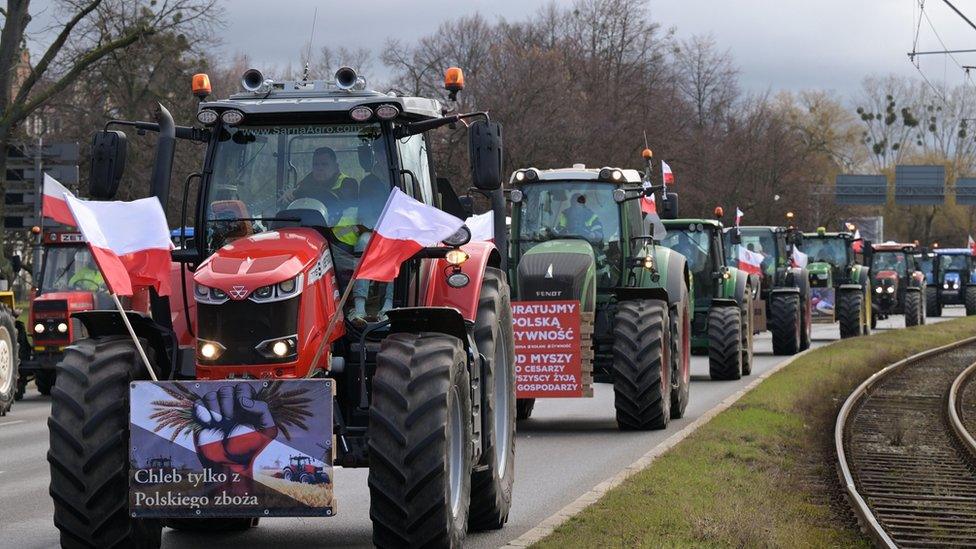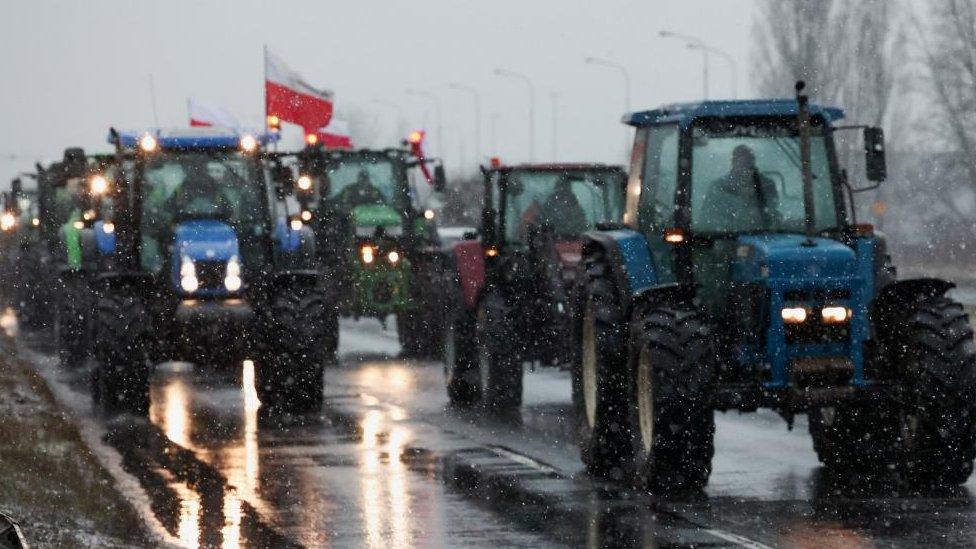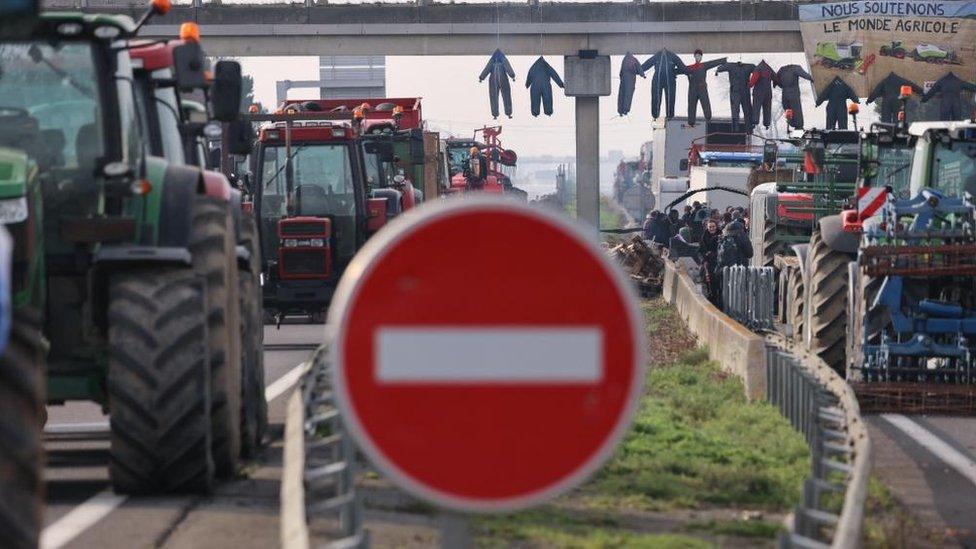Polish farmers block Ukraine border in grain row
- Published

Polish farmers have been protesting against the influx of cheap Ukrainian grain since 2023
Polish farmers are staging protests against cheap Ukrainian grain flooding the market and EU regulations on pesticide and fertiliser usage.
Tractors flying Polish flags blocked motorways and major junctions in almost 200 locations, organisers said.
Blockades are also taking place at several border crossings with Ukraine.
Ukrainian President Volodymyr Zelensky said the protests demonstrated the "daily erosion of solidarity" with Ukraine.
He said the protests were about politics, not grain, because "only 5% of our agricultural exports pass through the Polish border".
Footage on social media appeared to show grain being spilled onto a train track from a goods wagon at the Medyka crossing.
Ukraine's ambassador to Poland, Vasyl Zvarych, said the spilled grain was Ukrainian and condemned the action.
Writing on X, formerly Twitter, Mr Zvarych said: "The police should react decisively and punish those who break the law. It is also a lack of respect for the work of Ukrainian farmers in conditions of Russian aggression towards themselves and others. Shame and disgrace, gentlemen!"
A Ukrainian deputy prime minister, Oleksandr Kubrakov, called the act a "political provocation aimed at dividing our nations".
Ukrainian lorry drivers said they would retaliate and blockade Polish drivers at three crossings on their side of the border.
There are huge queues of lorries at several border crossings following protests over recent months. Clearing customs at one crossing is now taking more than two weeks.
Polish protest organisers are demanding the introduction of an import ban on Ukrainian agriculture products and the scrapping of restrictions on the use of fertilisers and pesticides under the EU Green Deal.
The EU allowed Ukraine tariff-free access to its markets following Russia's invasion.
Polish dealers bought up the cheap Ukrainian grain, but a lack of port infrastructure meant much of the grain remained in Poland rather than being exported to third countries.
That caused stockpiles of grain in Poland to reach record high levels last year.
In May, the European Commission introduced an import ban on Ukrainian grain to five neighbouring countries, although this did not apply to grain meant for transit. When the ban was lifted in September, Poland unilaterally introduced its own ban on four types of grains, as well as flour and animal feed.
Poland's new pro-EU government is sympathetic to the farmers' demands and is urging Brussels to reach a compromise over imports with Ukraine.
In January, the EU said it would introduce a "safeguard mechanism" that would allow it to reimpose emergency tariffs on Ukraine if an excess of imports threatened to destabilise the market.
Related topics
- Published9 February 2024

- Published19 November 2023

- Published27 January 2024
